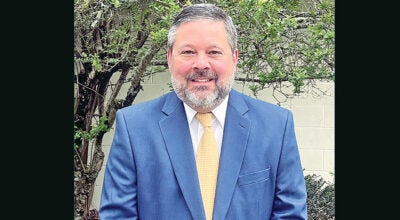System For Funding
Published 9:59 am Thursday, March 7, 2013
The almost 25 percent cut in the county’s general fund budget in December sent officeholders scrambling to rework how they were going to make ends meet.
That is except for two offices — that of Lawrence County Municipal Judge Donald R. Capper and Lawrence County Prosecutor Brigham Anderson. Those two budgets have already been court-ordered — Capper for the county court he presides over and Common Pleas Judges Charles Cooper and D. Scott Bowling and Probate/Juvenile Judge David Payne for the prosecutor’s office.
The County commissioners have said they are willing to work with the officeholders and are waiting to see if revenue to the county will increase during the year. Critics call court-ordering unfair but others say it is simply the method by which these officeholders are able to get their budgets.
“They have 100 percent authority (to do that),” said John Leutz, senior policy analyst for the County Commissioners Association of Ohio. “It is a separate and distinct branch of government and under the constitution and the concept of separation of power, the court has the inherent authority to secure the necessary resources from their funding source for reasonable and necessary expenses.
“It is a question of fact as to whether or not the resources requested are reasonable and necessary to provide for the administration of justice. The burden is on the funding authority to prove the resources are unreasonable and unnecessary.”
Earlier this year Capper court-ordered $505,399 or just over $72,000 more than the amount the Lawrence County Commissioners allotted the judge at the end of 2012. That is also $15,860 more than what was actually spent from the general fund to operate the Chesapeake-based court in 2012.
The largest expense in Capper’s request is for salaries other than his own. The judge is asking for $260,000 for 2013; while the commission has given him $217,000 for 11 court employees including two part-time workers.
“That is a totally unrealistic and inadequate amount,” Capper wrote to the commission. “The court has made substantial reductions in staffing over the last few years by virtue of lay-offs and by not replacing staff members who have retired and requiring existing staff members to take on additional duties. … Further this court finds that no staff members have been given a raise or bonus for two years.”
Anderson’s budget was court-ordered at $929,903 in 2013, the same request as 2012. That is approximately $188,917 more than the $740,986 the commission originally allocated for his office last year before adding funds later in the year.
“Each prosecuting attorney’s budget by state law is set by the judges of that court,” Anderson said. “They are most in touch with what is required to run a prosecutor’s office.”
Last year that office prosecuted 10,000 cases in all the courts in the county.
“We prosecute from a speeding ticket to murder and everything in-between,” Anderson said.
By the end of 2012, $919,084 was spent out of the general fund to run the prosecutor’s office or about $10,000 less than the court order.
“The commissioners couldn’t come up with the money,” Anderson said. “We have three other grants that are state and federal and other funding.”
That was used to make up the difference.
In general, the reason the route of court orders is taken is in essence because that’s the system.
“Basically the court only talks through its journal,” Leutz said. “Until I journalize by my own court order, I haven’t said anything. Bottom line that is the only way the judge can officially state, ‘I want, need, desire.’”
Right now the commissioners are playing a waiting game to see if $14,766,804 that was certified in December as revenue into the general fund will stay the same or will the sales tax and the new casino revenue funds boost the bottom line significantly.
“We are going to wait until we get that second quarterly casino revenue, which we will know in April,” Commission President Bill Pratt said. “The fourth casino is open in Cincinnati.”
The state said Lawrence County should expect $900,000 in casino revenue for the year. However the budget commission only certified $500,000 or $125,000 a quarter.
The first quarter casino funds came in at $144,000, but should have been $225,000 if the state’s projection had been correct.
“If that comes in at $144,000 or above, we should have some idea if we will have another certification of revenue,” Pratt said.
If revenue doesn’t go up, then to meet the court orders the commission will have to start unappropriating allocations from other officeholders.
Pratt doesn’t anticipate the commission balking at these court orders. However, if a commission would refuse to obey the orders, the next step would be to go to the typical arena where conflicts are resolved — court.
That is after the funding authority, aka the commission, would be cited for contempt by the judge ordering the budget. Then would come a show cause hearing before that same judge.
“(Next the commission) has the option of going to the court of appeals or the Supreme Court,” Leutz said. “Supreme Court does not like these funding disputes.”
If the impasse escalates to the courtroom then both sides would require legal counsel.
“It becomes a very expensive process,” Leutz said.
What won’t happen is the commissioners ending up behind bars.
“That was a revision to the law and the process and you can’t put them in jail,” Leutz said.
August is the anticipated date when the first officeholders will run out of payroll funds or be close to that point, Pratt said.
“By May or June we may have to start making some decisions on whether we will have a new certification,” Pratt said. “If not, we will start to unappropriate from the others. We don’t want to wait. It makes things harsh for the other officeholders. We want to make some corrections before then.”





